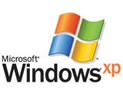
 | ||||||
 | ||||
The company has ceased trading. The commercial parts of this site have closed.
Philip has taken over the site and intends to redevelop it as a not-for-profit internet resource.
Microsoft Windows |
|||
The operating system is a program which provides the link between the computer hardware and the user or an application program. The majority of PC-compatible computers run one of the Microsoft Windows® family of operating systems. The Apple Mac is a different system, which not compatible with the industry standard PC. The Mac has its own operating system, MacOS®. In practical terms, so far, the only viable option for making music on PC-compatible computers is Windows. Over the years, there has been a series of versions, Windows 3.1, 95, 98, Me, NT, 2000 and now there is Windows XP. Essentially Windows 95, 98, Me have the same engine, but with refinements and added features. Then along came Windows XP; it may look similar to the others but now it is a true 32-bit operating system, based upon Microsoft's business operating system NT. Windows XP is the most stable version of Windows yet, and it is the preferred platform for the latest music-making software. Windows XP is available in Professional and Home editions. The Professional Edition is more expensive; it includes all the features of Home Edition, plus improved security, privacy, networking, advanced recovery options and support for dual processors. Home Edition is the usual choice for music-making systems. On their website, Microsoft have a comparison chart, which may help you choose between the two editions. |
|||
 |
|||
Linux |
|||
Linux is an operating system that was initially created as a hobby by a young student, Linus Torvalds, at the University of Helsinki in Finland. Linus had an interest in Minix, a small UNIX system, and decided to develop a system that exceeded the Minix standards. He began his work in 1991 when he released version 0.02 and worked steadily until 1994 when version 1.0 of the Linux Kernel was released. Linux is developed under the GNU General Public License and its source code is freely available to everyone. This however, doesn't mean that Linux and its assorted distributions are free -- companies and developers may charge money for it as long as the source code remains available. Linux may be used for a wide variety of purposes including networking, software development, and as an end-user platform. Linux is often considered an excellent, low-cost alternative to other more expensive operating systems. Although many variations of the word Linux exist, it is most often pronounced with a short " i " and with the first syllable stressed, as in LIH-nucks. Agnula (short for A GNU/Linux Audio distribution) is a project for thw development of two reference distributions for the GNU/Linux operating system completely based on Free Software (i.e. under a FSF approved Free Software license) and completely devoted to professional and consumer audio applications and multimedia development. One distribution will be Debian-based (DeMuDi) and the other will be Red Hat-based (ReHMuDi). Both will be available on the network for download and on CD. The project started on the 1st April 2002 and will last for two years. In the second year the project will also extend to hardware platforms other than PCs (e.g. PowerPCs, 64-bit architectures). |
|||
 |
|||
![]() Audio interfaces product directory
Audio interfaces product directory
![]() to Phil Rees Music Tech computer systems
to Phil Rees Music Tech computer systems
![]() to Phil Rees Music Tech home page
to Phil Rees Music Tech home page